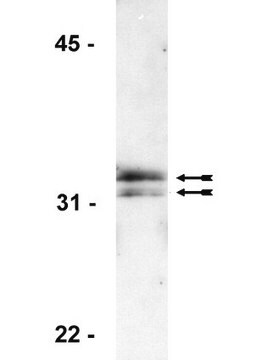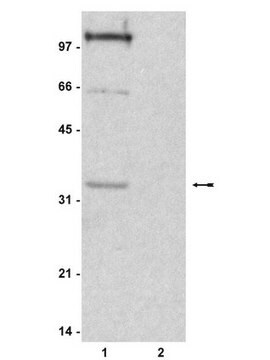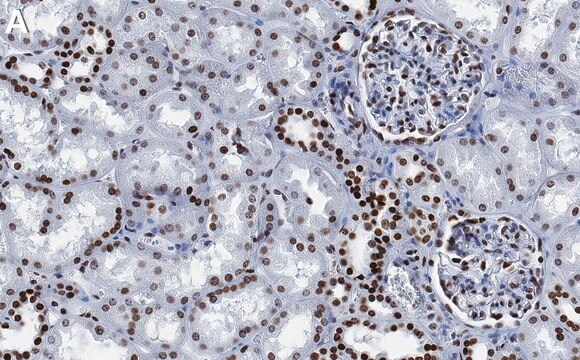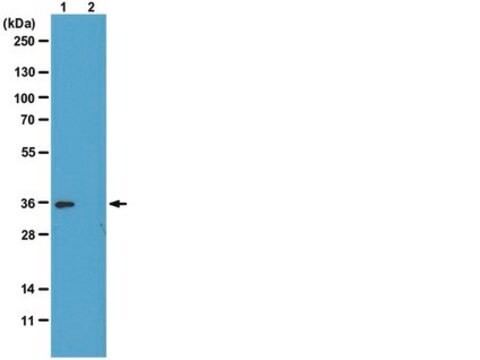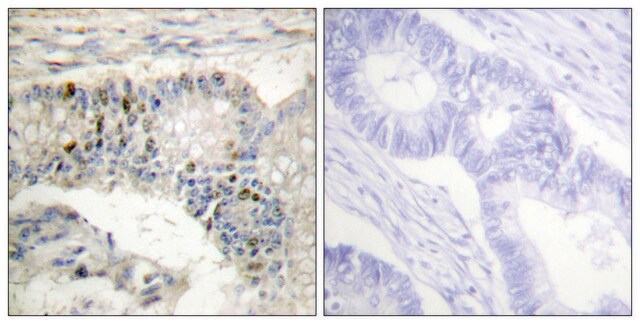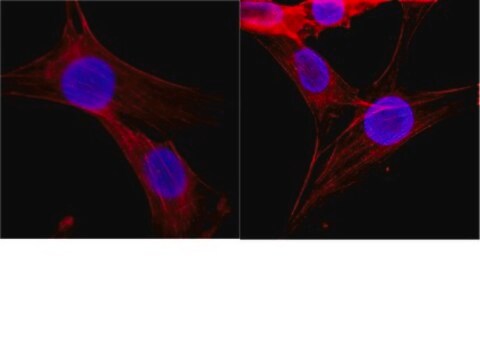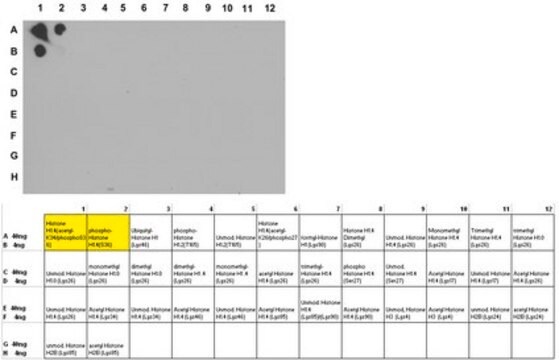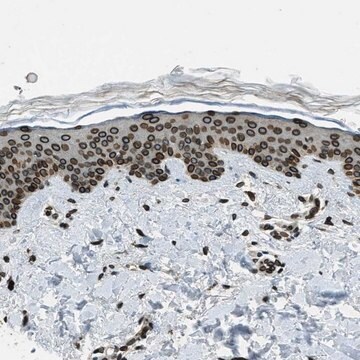MABE446
Anti-Histone H1° Antibody, clone 34
clone 34, from mouse
Synonyme(s) :
Histone H1.0, Histone H1(0), Histone H1°
About This Item
ICC
IHC
WB
immunocytochemistry: suitable
immunohistochemistry: suitable
western blot: suitable
Produits recommandés
Source biologique
mouse
Niveau de qualité
Forme d'anticorps
purified immunoglobulin
Type de produit anticorps
primary antibodies
Clone
34, monoclonal
Espèces réactives
mouse, bovine, Xenopus, human, rat
Réactivité de l'espèce (prédite par homologie)
ox (immunogen homology)
Technique(s)
flow cytometry: suitable
immunocytochemistry: suitable
immunohistochemistry: suitable
western blot: suitable
Isotype
IgG1κ
Numéro d'accès NCBI
Numéro d'accès UniProt
Conditions d'expédition
wet ice
Modification post-traductionnelle de la cible
unmodified
Informations sur le gène
human ... H1F0(3005)
Description générale
Spécificité
Immunogène
Application
Epigenetics & Nuclear Function
Histones
Immunocytochemistry Analyis: A representative lot from an independent laboratory detected Histone H1° in Xenopus unfertilized eggs and early embryos (Fu, G., et al. (2003). Biol Reprod. 68(5):1569-1576.; Adenot, P. G., et al. (2000). J Cell Sci. 113(Pt 16):2897-2907.).
Immunohistochemistry Analysis: A representative lot from an independent laboratory detected Histone H1° in Xenopus embryo tissues (Grunwald, D., et al. (1995). Exp Cell Res. 218(2):586-595.).
Flow Cytometry Analyisis: A representative lot from an independent laboratory detected Histone H1° in FC (Grunwald, D., et al. (1999). Methods Mol Biol. 119:443-454.).
Qualité
Western Blotting Analysis: 1 µg/mL of this antibody detected Histone H1° in 10 µg of Jurkat cell lysate.
Description de la cible
Forme physique
Stockage et stabilité
Remarque sur l'analyse
Jurkat cell lysate
Autres remarques
Clause de non-responsabilité
Vous ne trouvez pas le bon produit ?
Essayez notre Outil de sélection de produits.
Code de la classe de stockage
12 - Non Combustible Liquids
Classe de danger pour l'eau (WGK)
WGK 1
Point d'éclair (°F)
Not applicable
Point d'éclair (°C)
Not applicable
Certificats d'analyse (COA)
Recherchez un Certificats d'analyse (COA) en saisissant le numéro de lot du produit. Les numéros de lot figurent sur l'étiquette du produit après les mots "Lot" ou "Batch".
Déjà en possession de ce produit ?
Retrouvez la documentation relative aux produits que vous avez récemment achetés dans la Bibliothèque de documents.
Notre équipe de scientifiques dispose d'une expérience dans tous les secteurs de la recherche, notamment en sciences de la vie, science des matériaux, synthèse chimique, chromatographie, analyse et dans de nombreux autres domaines..
Contacter notre Service technique

